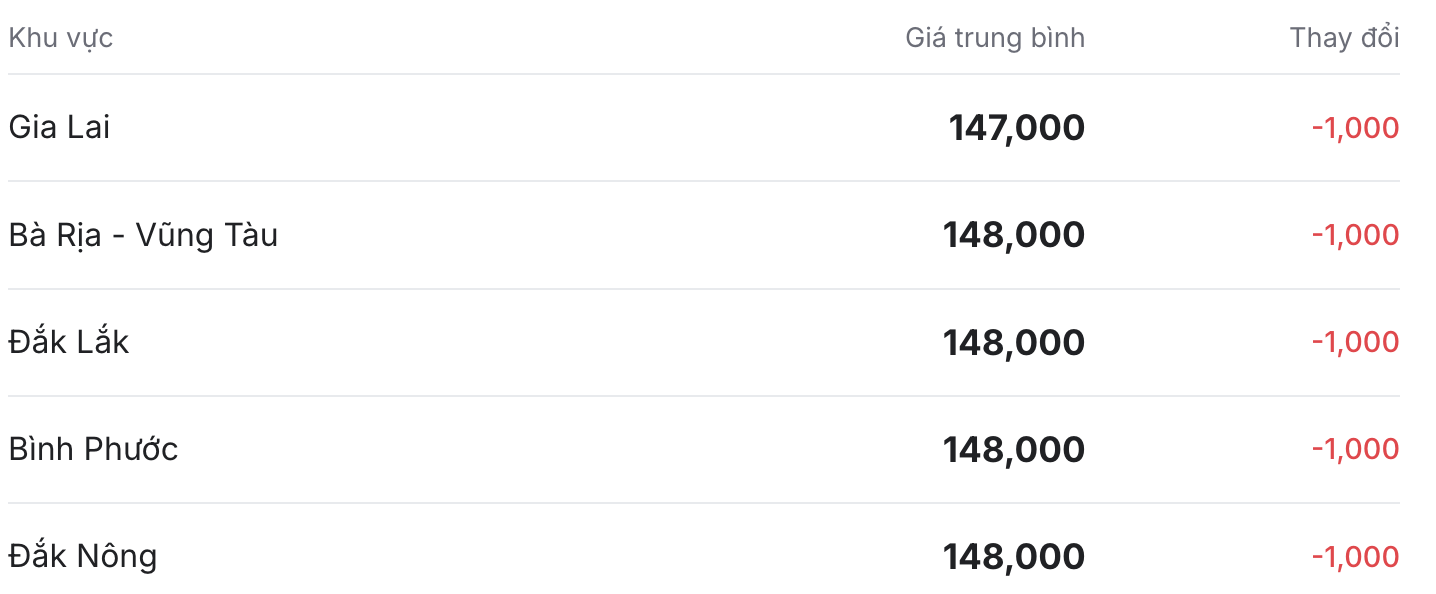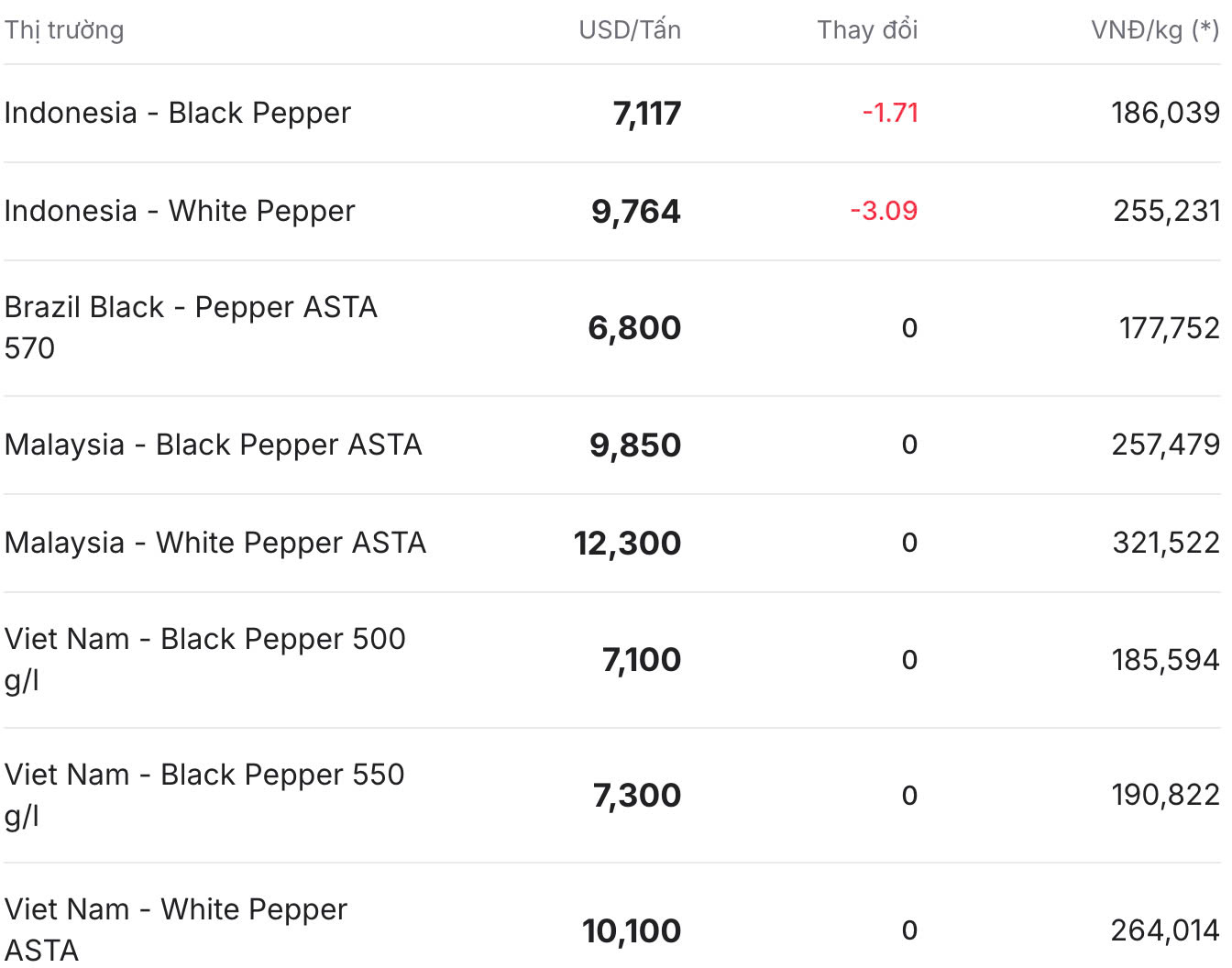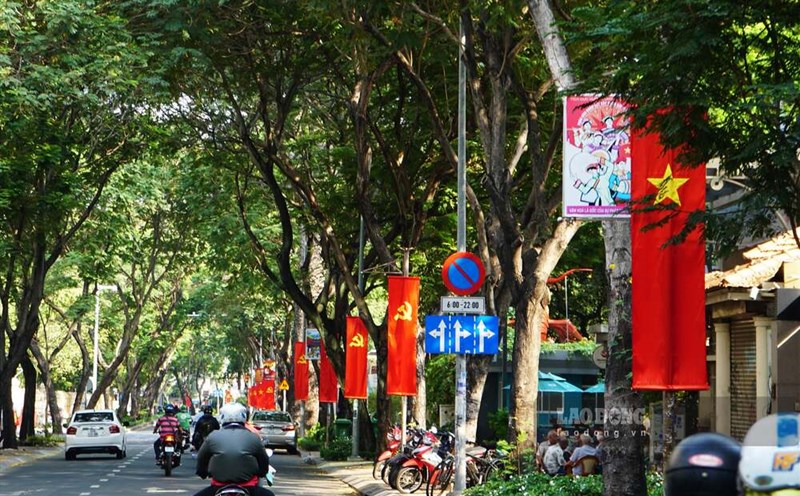Domestic pepper prices: Continue to slide
As of 11:30 today (September 9), domestic pepper prices continued to slide after a sharp decrease, an average decrease of VND 1,000/kg compared to the previous trading session. Currently, pepper purchasing prices range from 147,000 - 148,000 VND/kg. The average pepper purchase price nationwide is at 147,800 VND/kg.
Purchased at the lowest price among provinces and cities is Gia Lai province, currently pepper in this area is listed at 147,000 VND/kg, down 1,000 VND/kg.
Pepper prices have decreased by 1,000 VND/kg and are fixed at 148,000 VND/kg for pepper purchasing provinces and cities across the country.

World pepper prices: Lower after many days of stability
According to the International Pepper Community, on trading floors, black and white pepper prices in the Indonesian market fell after a series of stagnant days. Black pepper prices decreased by 1.71%, fluctuating around 7,117 USD/ton (equivalent to 186,039 VND/kg). White pepper prices fell sharply by 3.09%, to 9,764 USD/ton (equivalent to 255,231 VND/kg).
For the Brazilian market, the price of ASTA 570 black pepper was anchored at 6,800 USD/ton, unexpectedly decreasing by 150 USD/ton compared to the opening price of the trading session.
Meanwhile, in the Malaysian market, ASTA black and white pepper prices are anchored at 9,850 USD/ton and 12,300 USD/ton, respectively.
Notably, Vietnam's black pepper export price is still moving sideways. The 500 g/l type is traded at 7,100 USD/ton (equivalent to 185,594 VND/kg); the 550 g/l type is currently at 7,300 USD/ton (equivalent to 190,822 VND/kg). Similarly, the price of white pepper for export fluctuates around 10,100 USD/ton (equivalent to 264,014 VND/kg).

In the Indian market, pepper prices continue to remain unchanged in most pepper cultivations. Garbled pepper costs 67,200 rupees/kg, (equivalent to 210,431 VND/kg), Ungarbled is listed at 65.200 rupees/kg, while gram/liter has the lowest price of 64,200 rupees/kg (exchanged at 201,036 VND/kg).

Assessment and forecast
The Vietnam Pepper and Spices Association (VPSA) said that after information about US counterpart taxes, some US importers asked Vietnamese export enterprises to delay delivery and not sign new contracts. Some other unrelated markets also took this opportunity not to sign new contracts to wait for prices to decrease if Vietnam is taxed.
This directly affects domestic production, causing Vietnamese exporting enterprises to lose liquidity in the short term, increase inventories, and purchase of raw materials to stagnate, leading to prices decreasing in recent days.
Therefore, the Government's proposal for the US to temporarily postpone the countervailing tax rate for at least 45 days with Vietnam, in order to negotiate, prepare and transition to a state, is necessary to find a suitable financial policy to support businesses exporting to the US, support reduction of transportation costs and support stabilization of the medium and long-term raw material region.











